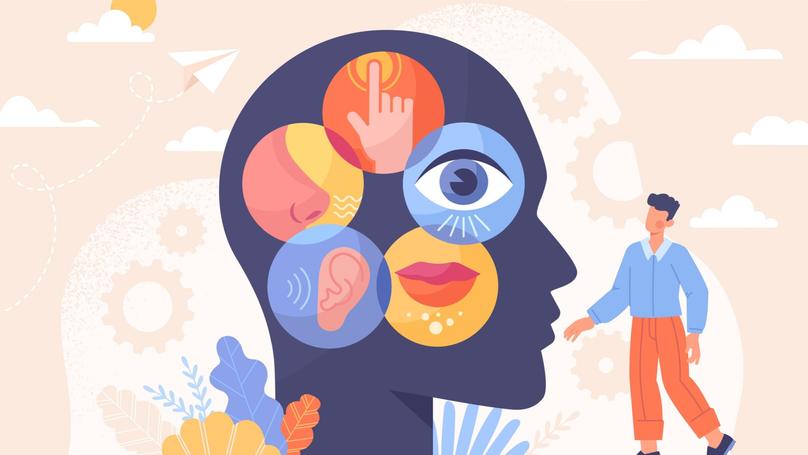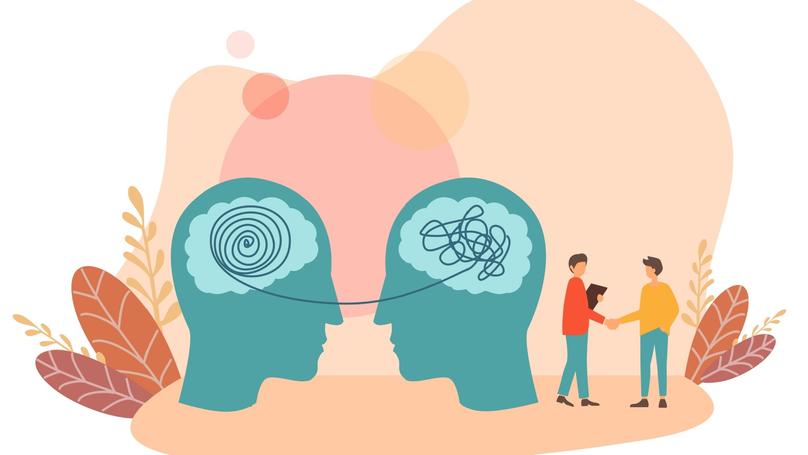Sensitivity

What is sensitivity?
Sensitivity is a term derived from the Latin word "sensus", meaning "sensitive". It refers to a feature of personality or character that expresses itself in a high responsiveness to triggers and stimuli, accompanied by a strong and active reaction to them. This feature can be manifest on a permanent basis and occasionally, or depend on certain external factors.
In simple words, sensitivity in psychology means a heightened awareness of and reactivity to stimuli, which can have a positive as well as a negative impact on a person's life. It modifies their perception of the outside world and themselves; it is also involved in communication, and in experiencing failures and mistakes, etc. Thus, sensitivity can be considered a personality trait where a person perceives the events and feelings with more acuity. The concept of sensitivity was introduced in psychology by Russian psychologist Lev Vygotsky in the early 19th century - he described different periods of development and formation of a child's personality through the prism of sensitivity.
In a certain sense, sensitivity is a superpower enabling a person to perceive and interact with other people more effectively and even monetize this trait, for example, by becoming a consultant or a psychoanalyst. However, sensitivity is often viewed as a weakness - a problem that makes life difficult for people, since sensitivity itself means "heightened awareness" and therefore borders on "oversensitivity". Thus, the interpretation and connotation of the term "sensitivity" depends on the context.
Types of sensitivity
There are several types of sensitivity, depending on the aspects of human activity they relate to.
Emotional sensitivity
It refers to an individual's emotional reactions to life situations. Thus, sensitive people experience negative events longer and can - because of their response intensity - react to them or other people's behavior "disproportionately" in the opinion of the majority. For example, an emotionally sensitive person can long replay in their brain a hurtful statement or cry if somebody raises a voice at them. They can also react painfully to criticism, injustice, even to requests that go against their attitudes or wishes. Emotional sensitivity doesn't always come with resentfulness, of course, but it is most often characteristic of the melancholic personality type. Emotionally sensitive people are also more prone to emotional and professional burnout and, according to statistics, suffer more frequently from mental illnesses, such as depression or anxiety disorders.
Sensory sensitivity
This refers to a high sensitivity of the sensory organs as channels for perceiving external signals, such as sight, smell, hearing, taste, or tactility. Thus, people with sensory sensitivities may have a low pain threshold and experience discomfort even from soft sounds or light touches. However, there is a positive side to it - such people, depending on which their sensory organ is their most sensitive one, can easily distinguish musical instruments or smells in perfumery, which enables them to realize themselves in one or another occupation (there are a lot of creative people among sensitives). Thus, an artist with high visual sensitivity can distinguish 15,000 shades, while 1,000 is the maximum for an average person.
Temperamental sensitivity
This type of sensitivity involves neural processes, or rather their speed and intensity. Criteria and measurement of such sensitivity depends on the temperament type which a person belongs to: so, the "sensitivity of the phlegmatic" may describe a person's organizational and management abilities, despite the calm and measured type of personality. The sensitivity of the choleric implies the ability to manage their anger and emotions, depending on the temperament of other people. That is, temperamental sensitivity enables to determine the extent to which a particular temperament type or their mix is expressed in a person (because "pure" cholerics, sanguinics, melancholics or phlegmatics don't exist).
Social sensitivity
Social sensitivity refers to a person's ability to interact with society and people around them based on the sensitivity of their perception. There are four other subtypes of social sensitivity:
-
Theoretical (or rational). A person easily notices and identifies other people's personality types, detects the difference between them and, based on this, adopts to efficiently apply a personalized approach in building personal and business relationships.
-
Observational. This is the most popular type of sensitivity, which "grows" out of the previous one if properly fostered: a person notices changes in people's behaviour and emotions based on verbal and non-verbal information (gestures, tone of voice, facial expressions, etc.) coming from them. People with this type of sensitivity easily master neurolinguistic programming (NLP).
-
Ideographic. A person with this type of sensitivity can easily make and describe a mental portrait of the interlocutor, having hardly met them. Such a person will immediately see their uniqueness and peculiarities and therefore behave differently with all people, in line with their customary way of communication.
-
Nomothetic. It is the highest degree of social sensitivity, when a person is capable of everything mentioned above and at the same time can also predict the actions and behaviour of people in various circumstances.
Social sensitivity is mostly referred to primarily in a positive way, as it is a kind of innate emotional intelligence that yields the most benefits in one's personal life and career. However, ideographic sensitivity can also result in certain consequences, such as the loss of individuality and mental problems. There is also an interpersonal sensitivity concept, which means the ability to use social sensitivity to build relationships.
In addition to the above, there are other types of sensitivity:
-
Developmental sensitivity. It is used in the context of child development and refers to the different-age stages of sensitivity in which a child is most receptive to learning of one type or another. For example, some experts argue that the sensory period from 6 to 10 years of age is the most favorable for learning languages and the world around them. A synonymous term is the sensitivity of mental development.
-
Sensitivity of the nervous system. This refers to the peculiarities of the psyche from the point of view of neurobiology, for example, the activity of brain neurons in response to certain stimuli, sensitivity of nerve receptors, different parts of the brain, etc.
-
Physiological sensitivity. It refers to the intensity of physical reaction in response to physical and emotional stimuli, for example, a person's heart rate quickly increases under stress, skin areas turn red when they are stimulated, etc.
-
The age sensitivity. This is sensitivity that manifests itself in a person as they grow older, both because of their experiences and as a result of neurochemical and biological changes.
What are the dangers of high sensitivity?

The positive aspects of sensitivity include:
-
A high likelihood of achieving occupational success. Sensitive people build careers faster, largely due to their heightened ability to find common ground with others and establish bonds of trust that sensitivity leads to.
-
Strong and lasting relationships. Sensitive people are better at identifying the needs and emotions of others and are characterized by high emotional intelligence and empathy.
-
Perfectionism. Such people often strive for perfection in the niche which they operate in (this, however, can have negative consequences).
-
The ability to quickly resolve conflicts and even prevent them. Sensitive people are difficult to quarrel with, as they are able to find compromises, actively engage in discussions and manage their own and other people's emotions, if they have practical experience.
However, sensitivity also has clear negative aspects that create additional problems and sometimes are even harmful in various spheres of human life. For example:
-
Difficulties in adaptation. The higher the sensitivity of a person, the harder it is for them to get used to a changeable environment, since all changes cause acute emotions and stress. Consequently, sensitivity is accompanied by low stress resistance.
-
Limited social activity and quickly increasing fatigue. The former correlates with the latter, since the abundance of emotions leads to emotional overload, so the person spends more resources on communication and even daily activities.
-
Psychosomatic disorders. For example, eczema due to excessive excitability and nervousness, or an entirely invented and "tried on" condition caused by mental disorders such as anxiety or hypochondria.
Thus, while the social sensitivity described above is useful in social relations, the emotional one usually becomes a source of problems, including mental ones. However, having emotional sensitivity does not mean that it will necessarily create additional difficulties for you. It can just as well be developed, controlled, and artificially lowered if it becomes excessive.
Signs of oversensitivity include:
-
Low self-esteem (because sensitives attach too much importance to their mistakes and other people's criticism);
-
Mood swings, rapid change of emotions (often opposing ones);
-
Anxiety, phobias;
-
Ruminations and obsessions, that is the inclination to "relive" events in one's brain, rethink, analyze and reflect on them;
-
Offensiveness, which can cause difficulties in building relationships;
-
Shyness or withdrawal in everyday life;
-
Excessive empathy, when the emotions of others are "transmitted" to the sensitive person;
-
Cognitive distortions and irrational behaviors caused by intense emotions;
-
Emophilia (the tendency to fall in love fast and often), building an attachment to new people quickly.
Why do some people have a heightened sensitivity? In fact, a whole set of factors, including biological ones, are responsible for this, as a rule. For example:
-
Genetics. Some people have biologically-determined sensitivity due to genetically high susceptibility to external stimuli. Even an individual's hormonal balance can exert influence.
-
Neurochemistry. Chemical processes run differently in each brain, so some people have more serotonin - a neurotransmitter that can enhance emotional reactions.
-
Crucial periods in human development. Absolutely everyone experiences them - they are periods in human life, when the person is most susceptible to new knowledge or emotional events which ingrain a person's sensory reactions, for example. Thus, a child may consciously or accidentally "learn" sensitivity at a certain age as a result of socializing with a sensitive person, for example.
-
Traumas. Traumatic events or prolonged stress can also increase sensitivity, especially if they occur in a crucial period, i.e., traumatic events happen, for example, in early childhood during personality formation.
-
Socio-cultural factors. In some countries, high sensitivity is the norm artificially inculcated by society. In Japan, for example, where there is a high level of sensitivity to the social norms and ethics, and therefore the cult of traditional values, politeness, and sacrifice.
-
Inborn personality type. People with certain personality types (melancholics, for example) tend to have a greater propensity to be sensitive, especially to internal and external stimuli.
-
Other factors. A person's sensitivity level can also be influenced by acquired - during their lifetime - beliefs, memories, experiences, other people, illnesses, etc.
In terms of psychology and the formation of personality traits, it is also possible to identify a whole set of factors - one's upbringing and family setting, for instance - that affect sensitivity. So, according to psychologists, sensitivity is most often the result of:
-
Strict upbringing. Children who grew up in family settings full of permanent restrictions and emotional aloofness are prone to self-criticism, phobias, and anxiety. They have a more excitable and unstable psyche and, as a result, experience emotions more acutely.
-
The lack of affection. Emotional alienation of parents forces the child to look for affection "on the side", in the people around them - be it their school teachers or friends. As a result, a person actively seeks communication and affection in adulthood, and it is precisely sensitivity that is required to promptly build them.
-
Upbringing by a single parent (single-parent family). This can also lead to attention deficit and painful reactions to certain interactions and issues, difficulties in building relationships with and trust in other people, resulting in emotional sensitivity, but directed "inward", with the person's feelings suppressed.
How to normalize your sensitivity

If you experience sensitivity symptoms affecting your relationships, performance, self-awareness and perception, you can "optimize" your sensitivity with a variety of actions intended not to suppress emotions, but primarily to increase your ability to cope with them:
-
Boost your self-esteem. Sensitive people tend to suffer from insecurity, and in such cases developing confidence can "mitigate" the effects of sensitivity. That is, instead of fighting against your personality's peculiarity, learn to accept it. Public speaking, personal care, working through past traumatic events associated with criticism, developing soft and hard skills that make you feel like an expert in certain areas, as well as accumulating occupational and life experience can all help improve your self-esteem.
-
Build a positive sense of self. Pay attention primarily to positive emotions and aspects of situations, focus on and shift your sensitivity to a more intense experience of joy, excitement, anticipation, etc. To do this, try practicing gratitude: every day before you go to bed, write down ten good things that happened to you during the day. Positive affirmations and practicing self-encouragement for completed tasks can also help.
-
Keep a diary of your emotions. Understanding what emotions you experience as well as why and how you do this allows you to better handle them, and therefore take control of your sensitivity. Every time you experience an intense emotion (especially if it hampers your ability to focus on your work and throws you off track), name it and describe how it manifests itself physically (shaking hands, heart rate, etc.) and what thoughts it triggers ("I can't handle it," "I can't do it"). Be sure to keep track of the factors that triggered these emotions. What happened shortly before you experienced them? It could be an argument with a colleague, your boss's remark, an accidentally seen movie fragment that brought about associations, etc.
-
Reduce anxiety. The best way to fight anxiety is psychotherapy with a qualified specialist, but you can also do it on your own using a variety of tools, such as meditation, taking micronutrients and vitamins, a balanced diet, regular moderate exercise, etc.
We recommend the following technique to cope with a sudden burst of sensitivity (i.e., a flash of certain emotions). It combines the meditation principles and the classical "grounding" (attention shifting) techniques:
-
Slowly count to 30 before expressing any emotional reactions. If necessary (for example, you are influenced by emotional factors at the moment), go to a quiet place or walk back and forth. Make sure you take a full breath in and out. "Shortened" and intermittent breathing triggers adrenaline release, which in turn increases emotionality.
-
Choose 5 objects around you and describe them. What material are they made of? What are they like to the touch? Do they have a taste or a smell? What color are they? What if you tap or press on them? What associations or memories do they evoke in you?
-
Only after that allow your feelings to manifest in one form or another. If it's sadness, find a private place and give yourself 5 minutes (set out the time) to cry. If it is anger, take a piece of paper and make a pen drawing or tear it up.
-
Discuss your emotions and the situation that triggered them. It is best to do this with a qualified psychologist or psychotherapist, but you can also do this with your partner or friend. For a sensitive person, it is very important not to keep emotions inside, but to express them in a constructive and harmless way for yourself and others.
How to improve your sensitivity

There are also reverse situations where a person lacks sensitivity to achieve their goals and build relationships with others. In such cases, there are simple sensitivity-building exercises that will allow you to do just that:
Verbalizing emotional states. This is a group sensitivity training, but it can also be practiced in pairs. In a group, you ask each other to take turns mimicking any emotion. Then you have to guess which emotion your interlocutor has mimicked, and to name its signs to explain why you have decided that this is exactly the one. For example, anger is characterized by frowned eyebrows, joy comes with a smile, etc. This task is equally challenging for both parties, because one person needs to show the emotion accurately and reliably, that is, to select the right features characteristic of it. The other party needs to correctly identify them. This exercise increases awareness and teaches you to distinguish emotions.
Observing people around you. All people experience one or another emotion at all times, and with their help, you can also improve your sensitivity, and do it on your own. Just sit in a café or even at your desk and observe passersby or your coworkers. Pick one of them and try to describe their emotions at the moment - pay attention to the tell-tale signs like a tense jaw, twitching fingers, a roving gaze, etc. In the future, this will help you better identify other people's emotions nonverbally and build productive relationships, for example, at negotiations.
Effective and ineffective reactions. In advance, write on cards 10-15 different events from negative to positive (you can also include some neutral ones). Draw them out one at a time if you are developing sensitivity in a group, or just go through them one after another on your own. For each event, write two scenarios of behavior if you are faced with it: the most emotional version with hyperbolized reactions and the optimal one that seems the most rational and appropriate in terms of logic. For example, no one is coming to your birthday party. The most emotional option is to boil over, to cry until dawn, to throw the cake out the window, to turn the table over and to hate all birthdays. The optimal option is to get upset, let yourself cry and go either alone or with the closest person to the nearest café or movie and just indulge yourself.
Conclusion
Sensitivity is not an abnormality and even less so a health condition - it is just a unique character trait that is natural and normal, just like a love of sweets or a love of solitude and loneliness. Sensitivity has a lot of hidden benefits that you can capitalize on if you learn to live with and control your sensitive perception. For example, sensitive people have every chance of building a brilliant and successful career and creating long-term and happy relationships. They already possess superior emotional intelligence, to improve which many people take online courses, and easily enter into mutually beneficial collaborations, partnerships and deals. As with all character traits, sensitivity just needs to be used wisely - and you'll be second to none!























